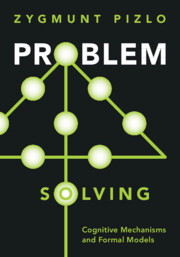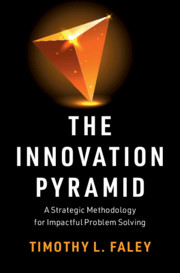Cultural-Historical Perspectives on Collective Intelligence
Patterns in Problem Solving and Innovation
Part of Current Perspectives in Social and Behavioral Sciences
- Author: Rolf K. Baltzersen, Ostfold University
- Date Published: January 2022
- availability: Available
- format: Paperback
- isbn: 9781108986755
Paperback
Other available formats:
Hardback, eBook
Looking for an examination copy?
This title is not currently available for examination. However, if you are interested in the title for your course we can consider offering an examination copy. To register your interest please contact [email protected] providing details of the course you are teaching.
-
In the era of digital communication, collective problem solving is increasingly important. Large groups can now resolve issues together in completely different ways, which has transformed the arts, sciences, business, education, technology, and medicine. Collective intelligence is something we share with animals and is different from machine learning and artificial intelligence. To design and utilize human collective intelligence, we must understand how its problem-solving mechanisms work. From democracy in ancient Athens, through the invention of the printing press, to COVID-19, this book analyzes how humans developed the ability to find solutions together. This wide-ranging, thought-provoking book is a game-changer for those working strategically with collective problem solving within organizations and using a variety of innovative methods. It sheds light on how humans work effectively alongside machines to confront challenges that are more urgent than what humanity has faced before. This title is also available as Open Access on Cambridge Core.
Read more- This book is also available as Open Access
- Provides a biological and historical analysis of collective intelligence
- Presents a broad overview of how problem-solving works in science, politics, and creative innovation
- Fully accessible to readers without specialist psychological knowledge
Reviews & endorsements
‘Rolf Baltzersen has written the best book to date on collective intelligence in relation to innovation processes and cultural evolution. It is both a precise and informative manual and a very inspiring manifesto.’ Pierre A. Lévy, Professor of Communication, University of Ottawa, Canada
See more reviews‘The book introduces you to the extraordinary Collective intelligence (CI) world and signposts different perspectives on CI. It explores common practices and characterizations of the phenomenon and then tackles context-based problem solving. It also discusses how CI can be successful in scientific and political domains. This book is a helpful reference for scholars and business professionals alike.’ Jaime Meza, Doctor in Project and Systems Engineering, Technical University of Manabi, Ecuador
‘This is an excellent survey of the state of knowledge about collective intelligence, which shows its relevance to a huge range of issues, from COVID-19 to citizen science and the future of democracy. The book also contains wonderfully rich examples of collective intelligence in history, from ancient Athens to the renaissance, showing the fertility of innovation around organising thought and decision-making at large scale. I strongly recommend it.’ Geoff Mulgan, Professor of Collective Intelligence, Public Policy and Social Innovation, University College London, UK
‘Rolf Baltzersen provides a compelling overview of collective intelligence, organizing cutting-edge research from a variety of disciplines within cultural-historical contexts. His distinction between swarm, stigmergic, and collaborative problem solving, which applies to human and nonhuman collectives alike, produces novel insights and makes an important contribution to the lexicon.’ Scott Page, John Seely Brown Distinguished University Professor of Complexity, Social Science, and Management, University of Michigan, USA
‘In the era of digital communication, collective problem solving is increasingly important. Large groups can now resolve issues together in completely different ways, which has transformed the arts, sciences, business, education, technology, and medicine. Collective intelligence is something we share with animals and is different from machine learning and artificial intelligence. To design and utilize human collective intelligence, we must understand how its problem-solving mechanisms work. From democracy in ancient Athens, through the invention of the printing press, to COVID-19, this book analyzes how humans developed the ability to find solutions together. This wide-ranging, thought-provoking book is a game-changer for those working strategically with collective problem solving within organizations and using a variety of innovative methods. It sheds light on how humans work effectively alongside machines to confront the most urgent challenges ever faced by humanity. This title is also available as Open Access on Cambridge Core.’ Rolf K. Baltzersen, Professor in the Faculty of Education at Østfold University College, Norway
'… this book will be welcomed by scholars of contemporary virtual experience … Recommended.' K. D. Winward, Choice
Customer reviews
Not yet reviewed
Be the first to review
Review was not posted due to profanity
×Product details
- Date Published: January 2022
- format: Paperback
- isbn: 9781108986755
- length: 250 pages
- dimensions: 230 x 152 x 30 mm
- weight: 0.72kg
- availability: Available
Table of Contents
1. What is collective intelligence?
2. Crowdsourcing
3. Open online knowledge sharing
4. Human swarm problem solving
5. The origins of human swarm problem solving
6. Human stigmergic problem solving
7. The origins of human stigmergic problem solving
8. Collaborative problem solving
8. The origins of collaborative problem solving
9. The origins of collaborative problem solving
10. Intelligent engagement
11. Intelligent contributions
12. Intelligent evaluations
13. COVID-19 as a wicked problem
14. Motivation to contribute
15. The intelligent society
References.
Sorry, this resource is locked
Please register or sign in to request access. If you are having problems accessing these resources please email [email protected]
Register Sign in» Proceed
You are now leaving the Cambridge University Press website. Your eBook purchase and download will be completed by our partner www.ebooks.com. Please see the permission section of the www.ebooks.com catalogue page for details of the print & copy limits on our eBooks.
Continue ×Are you sure you want to delete your account?
This cannot be undone.
Thank you for your feedback which will help us improve our service.
If you requested a response, we will make sure to get back to you shortly.
×




